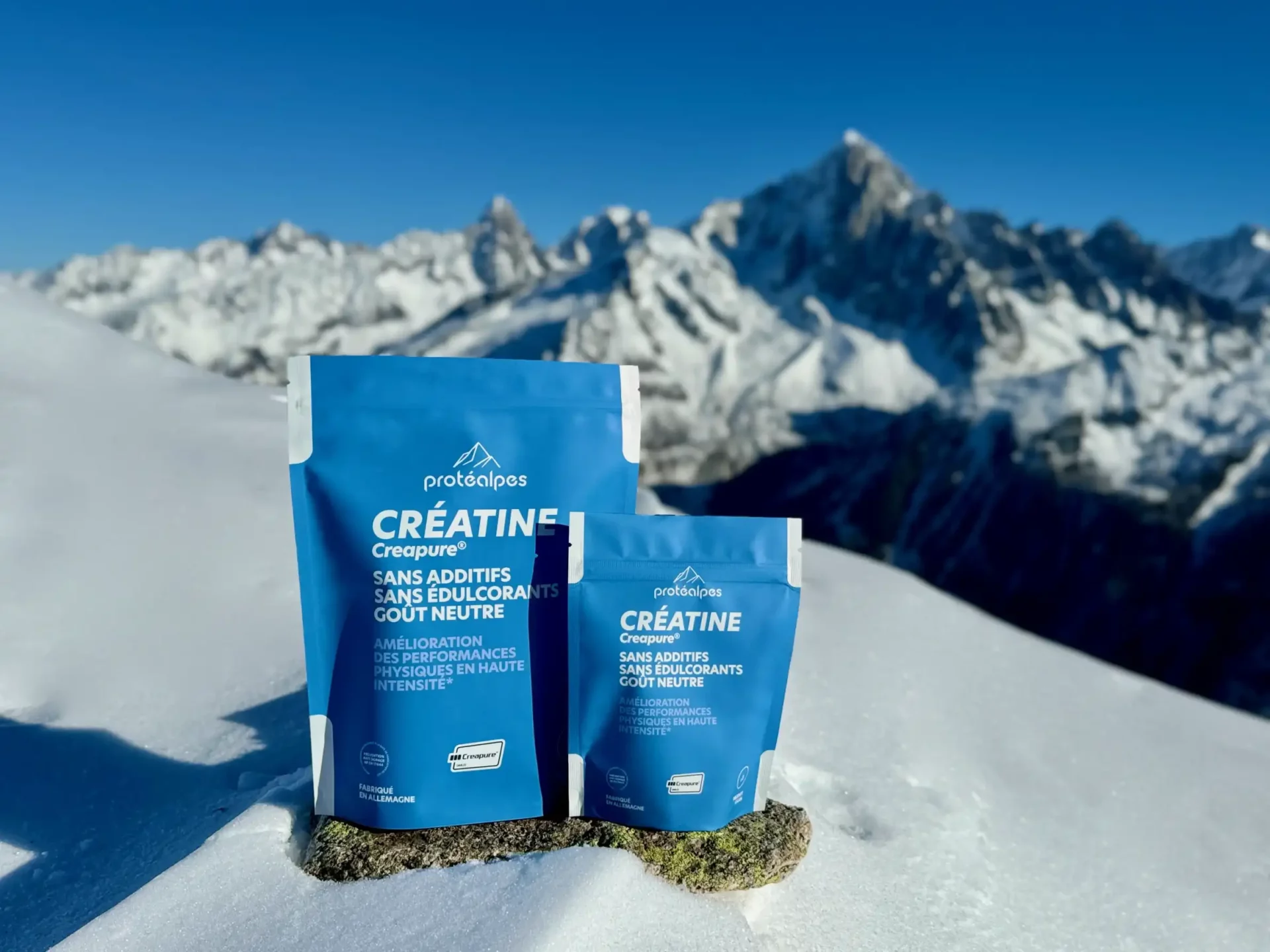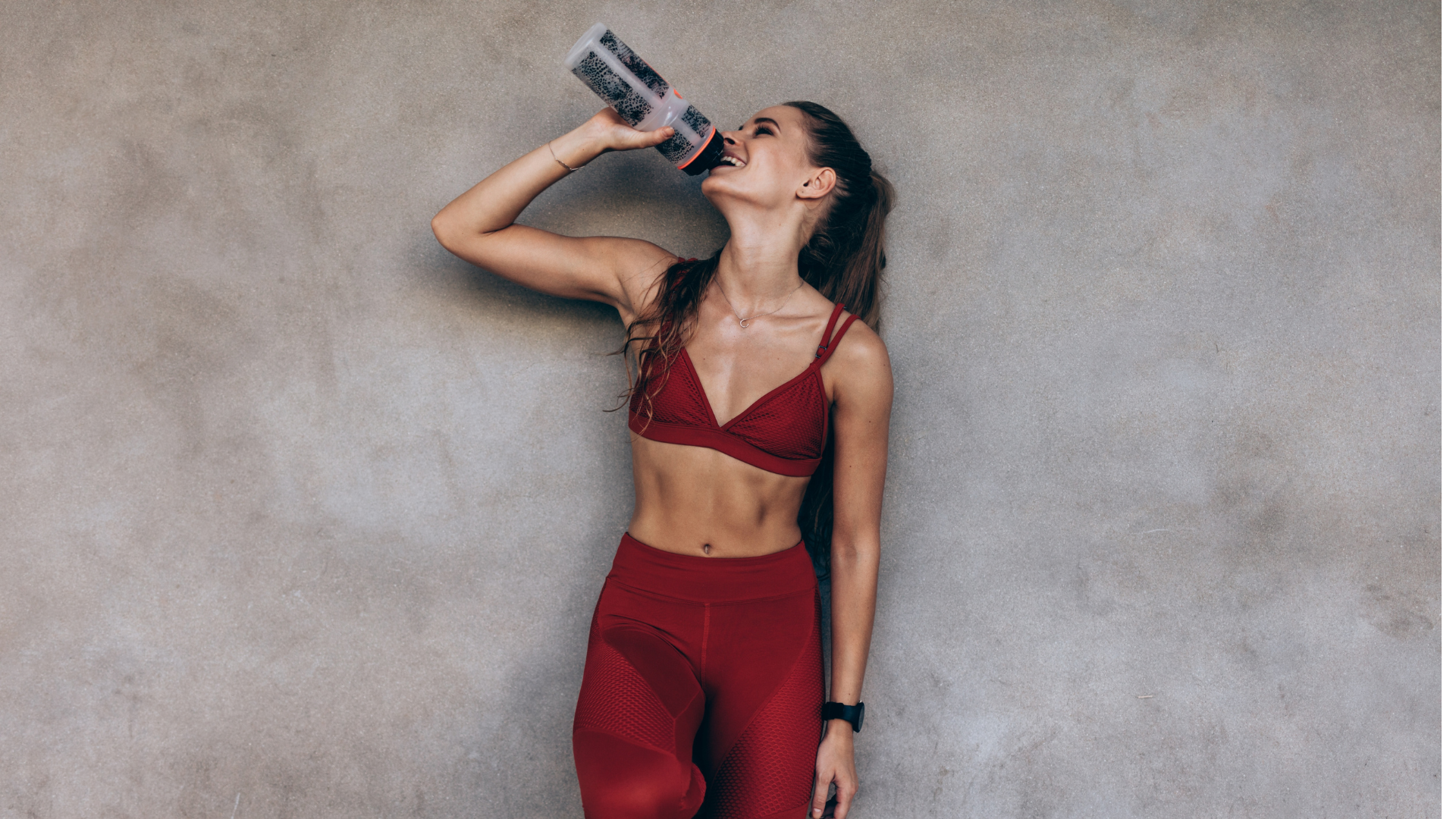You're probably familiar with creatine: it's THE leading supplement for athletes, along with whey, and that's no coincidence! It's one of the most well-documented and effective supplements for improving performance. Whether you've already taken a creatine cure or not, you've no doubt already wondered about the best time to consume it.
In reality, timing doesn't matter! What really counts is regular intake to maintain optimal levels in the muscles. That said, if you want to optimize the molecule's efficacy, take it post-workout or during your meals - that way, assimilation will be optimized!
Contents
How does creatine work in the body?
To understand when to take your creatine, you first need to understand how it works in the body. Creatine is a natural compound that your body already manufactures, mainly stored in the muscles.
Think of it as an ultra-fast battery backup for your muscles. When you make an intense effort - like lifting a heavy load or sprinting - your body needs energy immediately. That's where creatine comes in and maximizes your power!
Here are the validated effects of creatine:
- Creatine is converted into phosphocreatine
- This form allows you to rapidly regenerate ATP (your muscle fuel for very high-intensity efforts).
- More muscle creatine means more energy available for intense effort
Although creatine is naturally present in certain foods (red meat, fish, poultry, etc.), the quantities are relatively low compared with the doses recommended for sports performance (3-5g/day). This is why, even with a balanced diet rich in animal proteins, many athletes opt for supplementation. For vegetarians and vegans, whose dietary intake of creatine is very limited, supplementation is particularly interesting.

Is there really an ideal time of day?
When should creatine be taken? Should I take my creatine before going to bed or when I wake up? Before or after training? We often hear these questions. And yet, the answer is rather surprising: precise timing isn't all that important!
Creatine does not work as an immediate "boost". It works on the principle of saturation: your muscles gradually accumulate creatine over several days (minimum 5) until they reach optimal levels.
The aim is to keep your reserves constantly high. They will then be available whenever you need them, whether for a sprint, a heavy series or an explosive effort.
Before or after training?
Many of you are wondering: should creatine be taken before or after training?
Unlike whey protein, where post-exercise timing may be of interest via the anabolic window, creatine improves performance as long as muscle levels are maintained, irrespective of the timing of intake.

However, if you really want to optimize nutrient absorption, there are a few points in favor of post-workout intake:
Intense physical exercise increases muscle sensitivity to insulin. In particular, this hormone facilitates the transport of nutrients (including creatine) to the muscles. For this reason, a post-workout intake, ideally with carbohydrates that stimulate insulin secretion, could slightly enhance creatine absorption.
But remember, what really counts is the regularity of your intake. Choose a time that suits you and stick to it. Whether before or after training, the important thing is to be consistent and to maintain your supplementation over time.
During meals?
Insulin is a hormone secreted naturally when you eat. This hormone, as previously mentioned, plays an essential role in transporting nutrients to muscle cells. That's why it's often recommended to take your creatine dose during meals.
In their "Creatine Supplementation and Exercise" study, Thomas W Buford et. al1 showed that adding carbohydrates, or a carbohydrate-protein mix, to your creatine intake slightly increased its muscle retention. However, these combinations did not demonstrate any significant performance benefits compared with taking creatine monohydrate alone.
To put it plainly: yes, you can take creatine during a meal, as carbohydrates can help to better absorb the creatine, but the primary objective is always the same: to be regular in your creatine intake so that your reserves are always saturated.
Taking creatine with meals combines the benefits of proper absorption with the simplicity of a daily routine. No need to worry about ultra-precise timings!
What about days off?
Yes, during the cure period you must absolutely take your creatine on rest days !
Remember: creatine works on the principle of muscle saturation: regular intake is crucial to maintaining optimal muscle creatine levels, even on non-workout days.

How to optimize creatine absorption?
As you can see, there's no such thing as ideal timing. However, there are a few factors to consider in order to optimize creatine absorption. We've already talked about carbohydrates, which can give a boost thanks to the insulin response, but that's not all!
The secret to successful supplementation is to combine several strategies: cyclical intake (as a course of treatment), good hydration and, where appropriate, a combination with other nutrients.
What are the treatment protocols?
To find out how many grams of creatine per day you need, let's consider these two approaches:
The classic protocol with loading phase (Harris protocol):
- Loading phase: 20g/day for 5-7 days (divided into 4 doses of 5g each)
- Maintenance phase: 3-5g/day in a single dose
- Advantage: rapid muscle saturation
The progressive no-load protocol (Hultman protocol) :
- Directly 3-5g/day in a single dose
- Slightly slower saturation
- Advantage: better digestive tolerance
Important: although continuous creatine consumption is not dangerous, we recommend cycles to maintain optimal sensitivity. It's like training: your body adapts better with rest phases! For example, it's advisable tostop taking creatine every 4 to 6 weeks.
When it comes to form, choose creatine monohydrate powder with the Creapure®label. This is the purest form of creatine , and minimizes the risk of contaminant-relatedside effects. Capsules are convenient but often more expensive for the same effectiveness.
Moisturizing
There's a lot of talk about timing and dosage, but hydration is a crucial factor in the effectiveness of your creatine.
Creatine works by drawing water into your muscles. That's why we often see a slight weight gain at the start of a course - it's intracellular water retention, not fat!
Don't confuse over-hydration with proper hydration. It's not necessary to drink extra water when taking creatine. The dehydration observed in some athletes is often linked to theintensity of their training. A loss of 1% of body weight in water already results in a 10% drop in performance. For best results, it's essential to adapt hydration to the intensity of your workout.
Can it be combined with other dietary supplements?
When it comes to investing in sports nutrition, it's best to optimize. Creatine can be combined with other food supplements without any problem.
In fact, the creatine + whey protein mix is often recommended!
Studies have shown that the combination of creatine and protein can optimize muscle recovery and growth, thanks in particular to the complementary effect of these two nutrients.
Here's why this combination works so well:
- Whey provides the amino acids needed for muscle building
- Creatine improves maximum strength during training
Are there any risks of creatine overdose?
No serious side effects have been demonstrated, even over the long term.
First, let's talk about the symptoms you may experience in the event of an overdose. The most common? Digestive problems, mainly bloating or stomach cramps. Nothing serious, but unpleasant! These inconveniences generally occur when you exceed the recommended quantities or neglect your hydration.
If you have a history of kidney or liver problems, it's best to consult your doctor before starting a course of treatment.
Conclusion
In conclusion, the precise timing of creatine intake is not the most decisive factor in optimizing its effects on muscle strength and sports performance. The key is to maintain creatine levels at a maximum through regular supplementation.
The key to good assimilation lies in a few fundamental principles: choose a quality creatine monohydrate (Creapure® label), follow a suitable protocol (with or without a loading phase, depending on your preferences), maintain optimal hydration and combine your intake with carbohydrates to maximize absorption.
💡 Remember: creatine is a dietary supplement that supports, not replaces, quality training and proper nutrition.
Whether you're building mass or drying out, creatine can help you optimize your performance and muscle recovery. The key is to remain consistent in your supplementation, listen to your body and prioritize quality over quantity.
To find out more :
- Are you hesitating to continue your treatment? We explain what happens to your body after youstop taking creatine, and whether muscle wasting is to be feared.
- Creatine isn't just for muscles! Discover the creatine's benefits for the brainincluding memory, concentration and mental fatigue.
- Are you in the dry phase? Yes, creatine can be used to maintain muscle mass in the dry phaseas long as it's properly integrated into your protocol.
- Looking for volume? For effective effective mass gain with creatineDiscover the best practices and the type of creatine to use.
- Wondering whether creatine is authorized or considered doping? We take a look at the legalities and regulations surrounding creatine.
- And finally, for those who supplement with collagen, can creatine and collagen be mixed?















